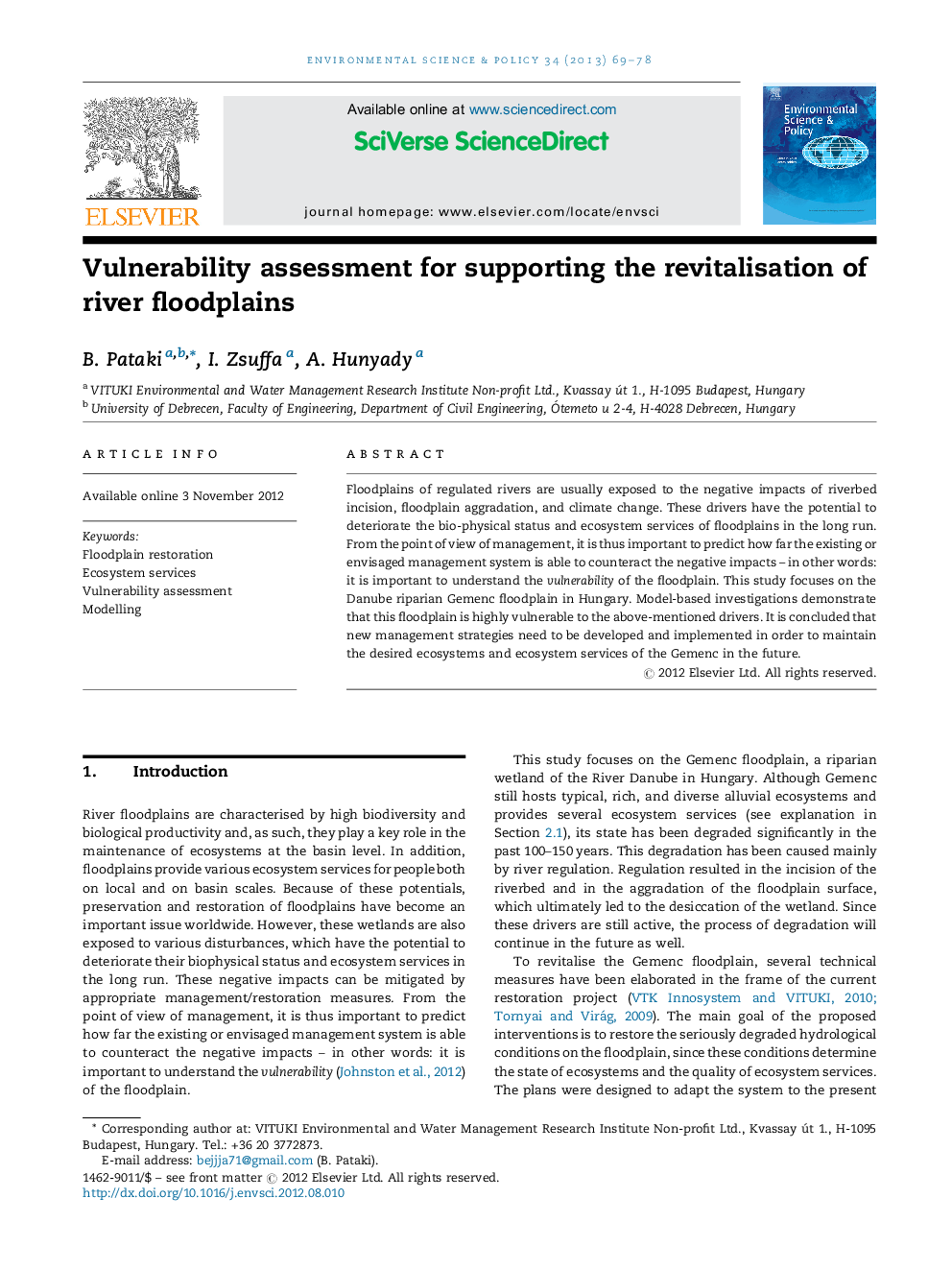| Article ID | Journal | Published Year | Pages | File Type |
|---|---|---|---|---|
| 1053586 | Environmental Science & Policy | 2013 | 10 Pages |
Floodplains of regulated rivers are usually exposed to the negative impacts of riverbed incision, floodplain aggradation, and climate change. These drivers have the potential to deteriorate the bio-physical status and ecosystem services of floodplains in the long run. From the point of view of management, it is thus important to predict how far the existing or envisaged management system is able to counteract the negative impacts – in other words: it is important to understand the vulnerability of the floodplain. This study focuses on the Danube riparian Gemenc floodplain in Hungary. Model-based investigations demonstrate that this floodplain is highly vulnerable to the above-mentioned drivers. It is concluded that new management strategies need to be developed and implemented in order to maintain the desired ecosystems and ecosystem services of the Gemenc in the future.
► The study focuses on the vulnerability of a floodplain along the Danube. ► Vulnerability is assessed by climatic, morphological and hydrodynamic models. ► The results show that the floodplain is highly vulnerable to external drivers. ► The envisaged adaptive measures are unable to counteract the intensive desiccation.
